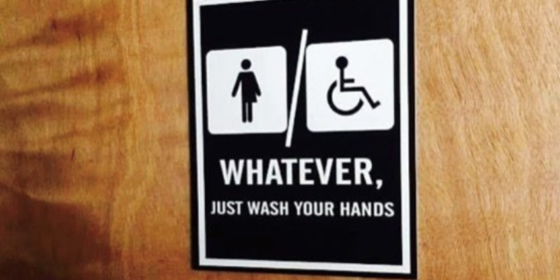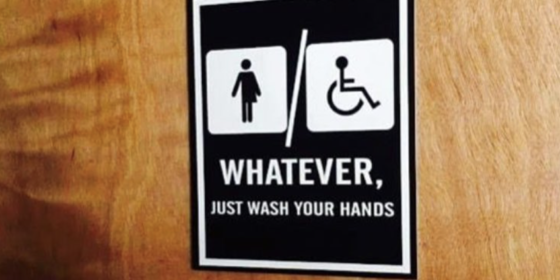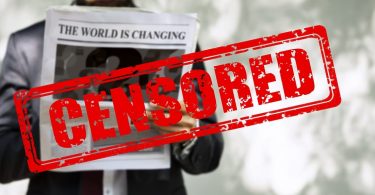
British non-binary people may get legal recognition as the UK government reviews gender policies it admits are ‘unfair.’
NHS England is seeking to improve the way trans and gender identity services are delivered. Trans people may see a set of more individually tiered services as part of the review.
A 12-week public consultation on the proposals launched on 7 July.
If adopted, it will recognize those who don’t identify in a gender binary ‘often have more difficulty in accessing specialist gender identity services.’
Until now, patients had to define as either ‘male’ or ‘female’ if they were going to access NHS gender services at all. So non-binary people either denied their true identity and fitted in with doctor’s expectations or got no service at all.
Now, the gender identity service will allow individuals to have ‘personal autonomy’ in defining their gender identity and presentation under the proposals. That will give them equal access.
Speaking to Gay Star News, Jamie Pallas the comms and project co-ordinator at Gendered Intelligence was cautiously optimistic about the changes the NHS document suggest.
Pallas said: ‘It seems the report has recognized non-binary genders and that non-binary people seek surgical and hormonal intervention. I hope that this leads to changes that remove barriers.’
The consultation also looks at the way prescribing happens for those who access gender identity services.
One of the options is creating new GPs with a special interest in gender dysphoria across the country.
The government also asks a range of other questions in its consultation, including:
- Allowing patients aged 17 to access NHS gender services. At the moment some local areas accept patients at 17, some only at 18 or over, creating a postcode lottery.
- That you will have to be registered with a GP to get a referral for specialist Gender Identity Clinics.
- Only Gender Identity Clinics will be able to refer patients for genital reassignment surgery – not other NHS professionals, or private clinics.
- Equality or health inequality impacts of the services.
Is this good news for trans NHS users?
Gay Star News spoke to Bernard Reed OBE, co-founder of the Gender Identity Research and Education Society (GIRES) who was at the launch of the consultation on Saturday.
Reed explained this review of NHS services will replace an ‘interim’ set of rules set up in 2013. The GIRES co-founder said two previous attempts to replace the ‘interim protocols’ have already stalled.
This time round ’80 clinicians and 30 stakeholders are already in place.’
With the 90 day consultation period, he hopes many more voices will contribute.
‘It’s good the NHS is listening, but now we need to go through the document line by line.’
However, Reed did say that his initial reactions were positive.
‘They are definitely an improvement over what was in place before, but closer scrutiny will throw up outstanding issues.’
Should people have to go to specialized services?
Dr Helen Webberly is a family doctor (GP) and gender specialist from Wales in the UK.
Webberley, set up a website that offers digital healthcare after her interest in the sector. Very quickly the gender care she offered through the website was the most sought after service.
Astounded by the number of calls she gets, Webberley has become a regular commentator on gender care in the NHS.
She thinks it’s dangerous to create GPs with special interests in gender dysphoria because it might give other GPs a ‘get out of jail card’ to pass cases on.
Writing for Gay Star News she sets out the case for why all GPs should have the knowledge to help people with gender dysphoria.
‘If the current numbers of specialists in the field are unable to cope with the existing demand, how will they manage the increased workload which these shiny new specifications will bring with them?’
With this in mind Webberley questions whether the specialized services that this proposal suggests may be unnecessary.
‘GPs often cite they do not have knowledge or skills for this, but according to the GMC Good Medical Practice, doctors must keep their knowledge and skills up to date. Ignorance is no excuse for not delivering basic care.’
Speaking to Gay Star News Webberley likened gender dysphoria to the way the UK’s chief medical officer responded to reports that GPs were refusing to treat patients with HIV during the 80s.
‘The chief medical officer said GPs had to treat them, and that’s what we need with gender dysphoria too.’
Why now?
The Women and Equality Select Committee inquiry on Transgender Equality in January 2016 said that the current service for trans people had inconsistencies, unfair access, and was out-date in its approach.
The Government response took six months. It committed to a new trans equality action plan and a review of the Gender Recognition Act 2004 ‘to streamline and de-medicalise the gender recognition process.’
Most noteworthy to this week’s news, the consultation of Gender Identity Services was one of the indications in the government response, as well as reviews of
- the inclusion of trans people in sport,
- transphobia in the NHS,
- the recording of gender in passports,
- unnecessary recording of gender information,
- the rights of trans prisoners,
- and numerous other trans equality issues.
Chair of the committee, MP Maria Miller said at the time the government’s response didn’t go far enough:
‘Progress on a new trans equality action plan and reviewing the Gender Recognition Act 2004 will be very welcome … However, the committee shares the disappointment expressed by many in the trans community at the contents of the response.’
How can you take part?
The NHS is urging trans people, patient groups, clinicians and professional bodies to take part.
To get as many responses as possible, NHS England is planning workshops and digital webinars. They have already held workshops at Sparkle Weekend, the series of trans events held in Manchester about the consultation.
Scottish patients will also see changes. NHS Scotland will launch a similar process in August to complement the NHS England survey.
As GIRES plan their response, Bernard Reed urged people to take part in the consultation.
‘Trans services users need to be heard. They will all have their own take on this, and the service needs to be about the individual.’
The consultation is open until 30 September 2017.







